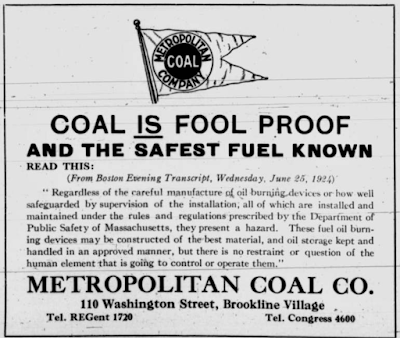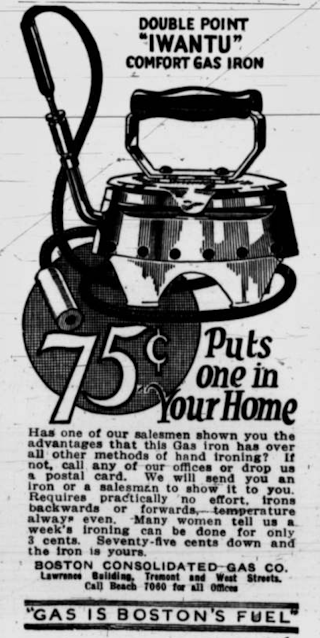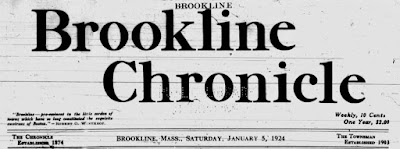Brookline in 2024 is a leader in moving away from fossil fuels. See, for example, the town's Sustainable Buildings page, its Electrify Brookline how-to guides, and other pages on the town website.
It's a transition period, with new local and state regulations and incentive programs paving the way toward a cleaner energy future. (As I write this, we are preparing to have heat pumps installed in our house, built in 1933 as part of the Blake Park development. See my Blake Park website for more on that development.)
One hundred years ago, Brookline (and other communities) were also in a period of energy transition, as evidenced by ads and news articles appearing in the Brookline Chronicle in 1924.
Electric and gas companies (and local businesses) promoted the benefits of their different means of powering appliances.
 |
| January 5, 1924 |
 |
| June 26, 1924 |
 |
| January 5, 1924 |
 |
| October 2, 1924 |
 |
| March 1, 1924 |
 |
| February 23, 1924 |
 |
| February 2, 1924 (Click image for larger view) |
"The four women in charge [reported the Chronicle] duplicated as nearly as possible the work that is done in the Boylston Street Kitchen -- that is the education of women in the use of electrical appliances. They washed clothes in an electric washing machine and dried them in a drier that drove air through them so fast that in ten minutes they were dry and as sweet and white as if they had been hanging out of doors in a high wind. Then they put them in an ironing machine that smoothed out every wrinkle.
"They baked biscuits and cakes on the electric range and served them with varied and delicious fillings with a cup of S.S. Pierce coffee made in an electric percolator or in a Silex percolator made entirely of glass."
The demonstration, reported the paper, also included waffles cooked on an electric waffle iron.
Despite that optimism, the electric kitchen did not really take off. Annual reports from Brookline's Supervisor of Wires and Lights reported no more than two dozen installations of electric ranges per year throughout the 1920s, while thousands of electric lights and outlets were being installed annually.
 |
| from 1924 Town Report |



